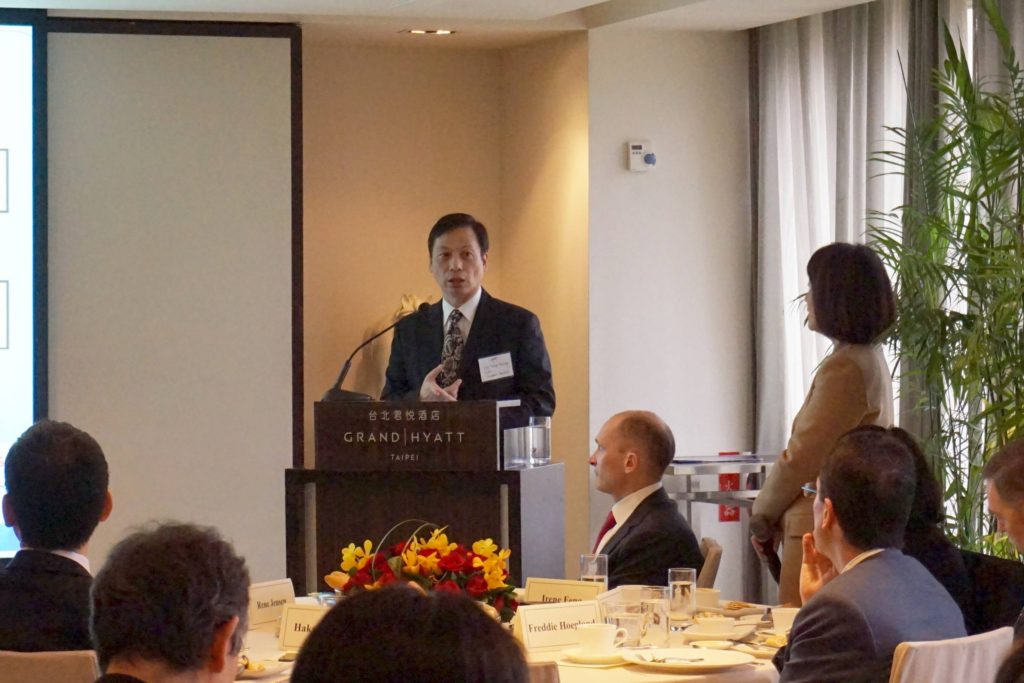Long-term healthcare policy and planning

Taiwan's demographics are shifting rapidly given the fact that it has had one of the world's lowest birth rates for more than a decade. The proportion of elderly people (aged 65 or older) in Taiwan was just over 7% of the population in 1993. By 2018 that figure is expected to rise above the 14% threshold, officially categorizing Taiwan an "aged society". Taiwan's aging trajectory has been so rapid that the proportion of elderly people is set to surpass those of most OECD countries by 2016.
According to statistics cited by Chu, over 3% of Taiwan's population is already "disabled" or requiring special care. As the population ages, this percentage is expected to rise proportionately. To address the needs of this rapidly-growing population segment, the government is in the process of developing long-term care programmes and building a comprehensive environment for elderly care. Providing long-term care insurance is part of this endeavour.
The DoSI is responsible for managing important affairs regarding social insurance including the national pension system and national health insurance. Other types of insurance (such as labour insurance) are covered by other agencies. There are currently six reimbursement categories, mostly for the elderly. Most of these reimbursements are fairly low (around NT$3,000 per month per person), although premiums are also low.
The MoHW is now in the process of planning long-term care insurance. While the MoHW will be in charge of the process, much of the implementation will be done by the National Health Insurance Administration (NHIA). The MoHW is currently drafting a long-term care insurance act, which, upon completion, will need to be reviewed and passed by the legislature.
Chu noted that, unlike national health insurance, the system for long-term care insurance will have to have built-in safeguards and a "gate-keeper" system to prevent moral hazard. For example, it has been proposed that there should be a three-year waiting period for eligibility for those who have not contributed to the system, such as those returning to Taiwan after living overseas. Given the lack of a global budget, such as there is in place for national health insurance, the long-term care insurance system will also need a sound system to verify eligibility and to establish the appropriate level of care required. In this regard, the system should define levels of disability, suitable packages of care based on the types of disability as well as the resources required and the responsibilities of various agencies. The system would need to provide for different types of reimbursement, including subsidies for care givers in the home. Chu said that the system would only provide basic care, which means that there would still be ways for private insurance to offer extra services.
As to how the system will be funded, it has been proposed that employers and employees should make compulsory contributions, in a similar way and proportion as they currently do for national health insurance (ie based on a percentage of salary whereby employers pay a higher contribution than employees). The contributions for long-term care of course would be lower than for national health given that the costs are lower. According to Chu, the annual costs for long-term health care are approximately NT$120 billion, compared to the annual budget of about NT$600 billion for national health insurance. However, it will take some effort to reach a consensus on the funding mechanism. While it seems natural that there would be broad support among older members of the public to make contributions to long-term care insurance, young people and employers are less willing. In preliminary discussions, some employers have argued that since long-term care does not directly affect their employees, they should not be responsible (implying that long-term care should be paid for via the central government, ie general tax revenue). Meanwhile young people tend to view long-term care in the same way they view pension planning – something too remote to concern them. Therefore, reaching agreement on how to fund long-term care insurance will require wide consultation and negotiations.
Chu concluded that the key to success of the proposed long-term care insurance are providing sufficient manpower, creating a secure and stable delivery system and having a stable financial source. The task ahead will be complicated. After the legislation has been drafted and passed, a comprehensive implementation plan will have to be drawn up and a timetable agreed to. The whole process is likely to take several years.
